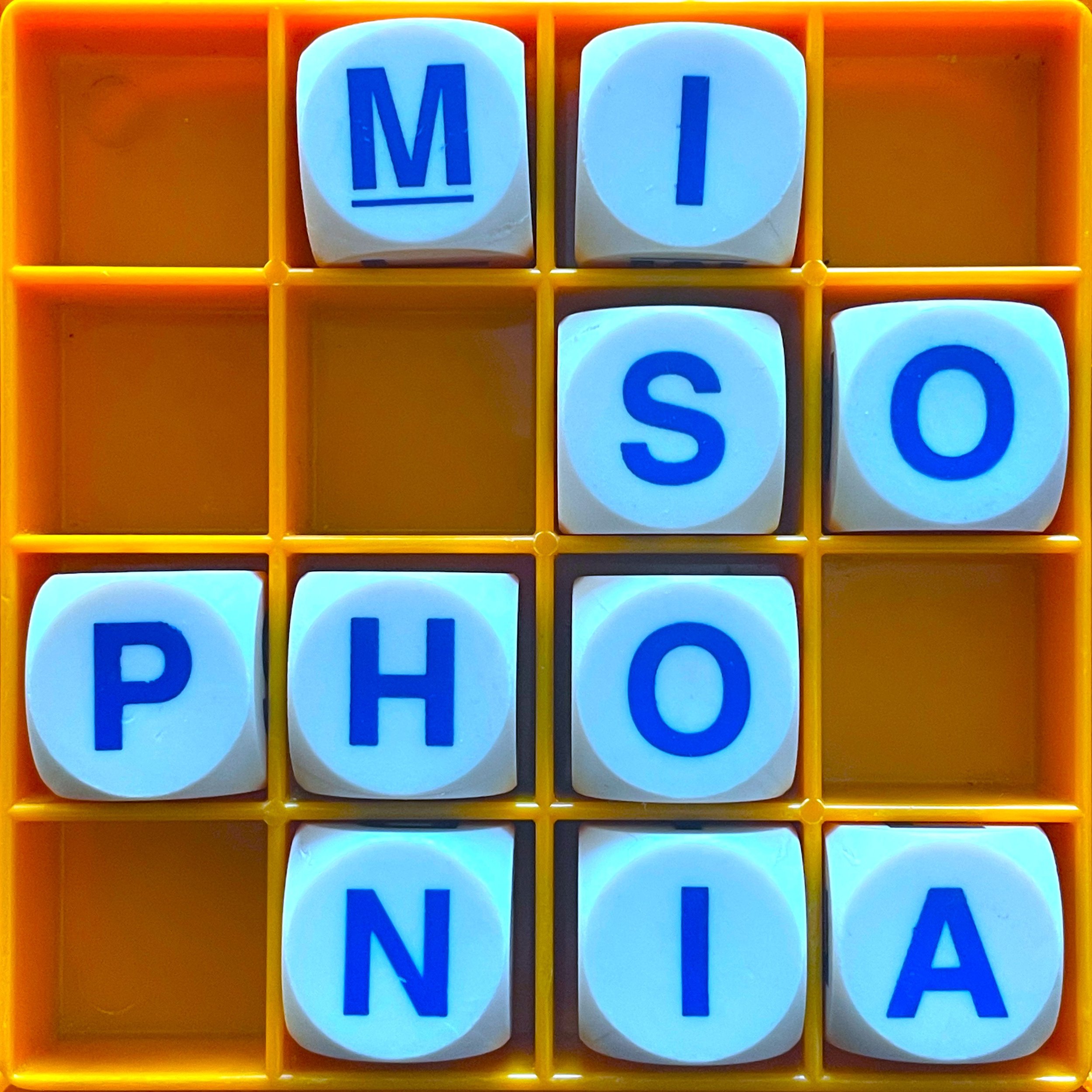MARY ROBINETTE KOWAL: Elsie does lie. I had just given her the "sleepy" button and I was in the kitchen. I was making lunch, and she goes to the button board and she says, "bedroom, sleepy, lie down." I'm like, "What a great contextual use. Yes, absolutely. Let's go take a little nap," and walk into the bedroom. And my cat doesn't come in, and I come back - and she's eating my cheese sandwich. And she has, multiple times, tried to send me out of the room in order to get my food. So when I'm making lunch and she starts talking to me and it's something like, “Go check the litter box” or something like that, food goes into the microwave and then I investigate whatever's happening.
HZ: How did that make you feel? You're like, “I can never trust her again?”
MARY ROBINETTE KOWAL: I don't know. I was like, oh, right. Cat.
Allusionist 204. Lexicat, part 1 transcript
HZ: It's a lot of deductive reasoning happening with how she's using language. Fascinating.
MARY ROBINETTE KOWAL: Yeah, it really is - which is why, when I get comments on videos where it's like, “Oh, this cat is just walking across buttons randomly,” I'm like, no, I have a dog that does that. I daily have moments where I'm like, okay, no, this is really a thing that's happening.
Allusionist 191 Hypochondria - transcript
CAROLINE CRAMPTON: A lot of the theoretical material that I'd read about hypochondria very much positioned it in this binary situation that either someone has, quote, real illness, i.e. illness that you can detect with a scan or a blood test or some other diagnostic tool, or "It's all in their head and it's made up," and those are the only two ways it can be. But, just personally, I feel like I'm pretty much constantly experiencing some combination of the two. And I think the idea that there is unwarranted fear: I don't think there is any such thing as unwarranted fear, to be honest.
Read moreAllusionist 184 Misophonia transcript
JANE GREGORY: Misophonia is an extreme reaction to certain sounds and not an aversion to all sounds, but an extreme reaction to specific sounds. And the most common sounds are eating and heavy breathing and kind of repetitive sniffing and coughing and things like that. Which are also sounds that most people don't like the sound of, but people with misophonia will get a much more intense reaction, so it might be more like a fight or flight kind of response, a feeling of anger or panic as opposed to feeling annoyed or irritated or disgusted by the sound. And there's a bit more to it in terms of what goes on around the sounds as well. So it might be feeling trapped or helpless when they can't get away from these sounds. It might be listening out for sounds, even when there aren't any, or continuing to listen to see if the sound is still going, even if it's stopped. And doing things to organize your life around sounds or to cope with sounds. when they happen. So most people who don't like a sound will just deal with it. For people with misophonia, they have to do things to not be able to hear it or to be able to cope with their reactions to it.
HZ: Rather than just grimacing.
JANE GREGORY: Exactly. I mean, there's also some grimacing, but probably also some glaring.
Allusionist 167 Bonus 2022 transcript
TIM CLARE: Hippocampus, meaning ‘horse’ because it looks like a a sea horse, right? …Oh, don't look at them! They look absolutely terrifying!
HZ: I I've never seen a hippocampus, so I don't know.
TIM CLARE: There is a real David Cronenberg-like element to them.
Allusionist 162 Self-Help transcript
JOLENTA GREENBERG: One of the main things a lot of these books like to do is remind you how bad you are at the beginning. Just like a pickup artist, there will be a chapter or two sort of negging you, or being like, “You know you're lazy about this.” A lot of books make you admit - some even make you write down all the areas like you're failing in or not putting 100% into, and so you literally will have a list sometimes of reasons why you suck. And then they're like, “And now I have the answers!” And it's like, “But you made me make up these problems in the first place.” So they like to dig you in a hole and then be like, “I can dig you out, too.”
Read moreAllusionist 160 Coward transcript
TIM CLARE: Calling someone a coward historically has often been a social lever used by the state to shame them for not doing something the state wants them to do - often walk into machine gunfire. Which, to me, doesn't seem like an act of cowardice to not want to do that.
Read moreAllusionist 152 Asperger transcript
EDITH SHEFFER: I do think it's important that Asperger's syndrome be removed as a distinct label. I don't think it's helpful medically and then ethically. Eponymous diagnoses are bestowed as an honour, to commend someone for one's life work and also to commend someone for discovering a condition. And arguably Asperger merits neither.
Read moreAllusionist 149 Complex PTSD transcript
STEPHANIE FOO: I was diagnosed with complex PTSD in 2018. And I had never heard of complex PTSD before. I Googled it; it sounded very serious and very scary.
HZ: And was it very serious and very scary?
STEPHANIE FOO: I mean, yes! I think it is very serious and very scary. I
Allusionist 123 Celebrity transcript
GREG JENNER: If we look back at classical sources, where do we get fame from? What does it mean? What's the origin point? The Greeks had a goddess called Pheme, and she is a winged, beautiful goddess, with a trumpet. She parps a trumpet. And that is your name being sung into the heavens through the trumpet. So it's a nice thing. It's good. You get fame and it means people going to hear about you. But when you get to the Romans, and we get one of the most famous Roman writers, Virgil, in his Aeneid, he talks about Fama, where we get our word 'fame' from. That derives from the verb 'fari', meaning to speak or gossip about someone. And Virgil's Fama is not a beautiful goddess with wings and a parping trumpet; she's basically Godzilla. She's a terrifying, massive monster who stalks the land and she's covered with eyes and ears and tongues, and she grows in scale the more people that are gossiping about you. So the more you're being chatted about or gossiped about, the larger this monster becomes until she's vanishing into the clouds and she never sleeps. And she hunts you down. And Virgil's version of fame is predatory. It's terrifying. It's this enormous force of nature that comes for you, and there's nothing you can do about it.
Read moreAllusionist 115. Keep Calm and transcript
HZ: Does being told to keep calm work?
JANE GREGORY: I can think of so many ways why it doesn't work.
Allusionist 100. The Hundredth - transcript
Today there’ll be a celebratory parade of language-related facts that you’ve learned from the Allusionist and I’ve learned from making the Allusionist, so some old facts, some new facts - well, the new facts aren’t recently invented facts, they are established facts, just making their Allusionist debut.
Read moreAllusionist 91. Bonus 2018 - transcript
Today’s episode is the annual bonus Allusionist, featuring outtakes from some of this year’s guests saying things that were not necessarily related to the topic of the original episode, or even related to language at all, but I thought, “Hmm! Interesting!” and filed them away until THIS MOMENT.
This is not a typical episode of the Allusionist, so if this is your first time here, welcome! And do try a few different episodes of the show to get a picture. This year there have been episodes about your names, and superhero names; about how swearing can be good for your health, and so can novels; about tattoos, and typing champions; about how the drive to survive sent the Welsh language across an ocean, and the Scots language to hide at home; and many more. Thanks so much for spending time with me over 2018.
Read moreAllusionist 82 A Novel Remedy transcript
When you’re not feeling well, which books do you turn to to make yourself feel better?
I asked this question on the Allusionist Facebook and Twitter, and hundreds of you responded, but a few answers came up again and again:
Terry Pratchett, Douglas Adams, JRR Tolkien.
Makes sense. Science fiction, fantasy: what’s more escapist?
Jane Austen. PG Wodehouse.
Also escapist, thanks to period setting - and, rich people problems not health problems.
Things you read when you were a child: Moomins, What Katy Did, Anne of Green Gables…
Taking you back to a time in your life that perhaps felt safer, or simpler...
...Harry Potter.
Boarding school shenanigans! Wizard problems not real life problems!
And, Agatha Christie.
Poison! Gunshots! Stabbing! Hang on, why would stories about murder make us feel better?
Well, they’re kind of supposed to make you feel better.
Read moreAllusionist 74. Take A Swear Pill - transcript
HZ: So why is swearing good for you?
EMMA BYRNE: It's good for us socially, in that it is this really useful telegraph of our emotions; it's a good way of avoiding physical conflict. It's also a really good way of bonding, of saying "I hear you. I feel the strength of your emotions," like saying "Fuck that shit" when someone comes to you with something that's obviously upset them. Sometimes it needs to be something stronger than just putting your arm around their shoulder going, "Oh there, there". It's also really useful individually, both for a cathartic side of things when you do something painful or frustrating, letting it out there.
HZ: Another reason swearing is good for you: it relieves pain.
EMMA BYRNE: That is really potent and surprisingly well documented. When you stick your hands, for example, in freezing cold water, you can stand it for about half as long again if you’re using a single swear word than if you're using a single neutral word. Not only that: when afterwards you're asked about how painful that experience felt, you report that cold water as feeling much milder than the water that you had your hand in while you were using some neutral word. So we know that it's really handy for dealing with pain that's being inflicted on you. We also know that it's quite useful, for example, among people who are suffering from long term conditions - so not pain that's been inflicted in a lab, the pain that is ongoing. So managing particularly the emotional aspects of long term pain, a good swear can be cathartic.
Read more














